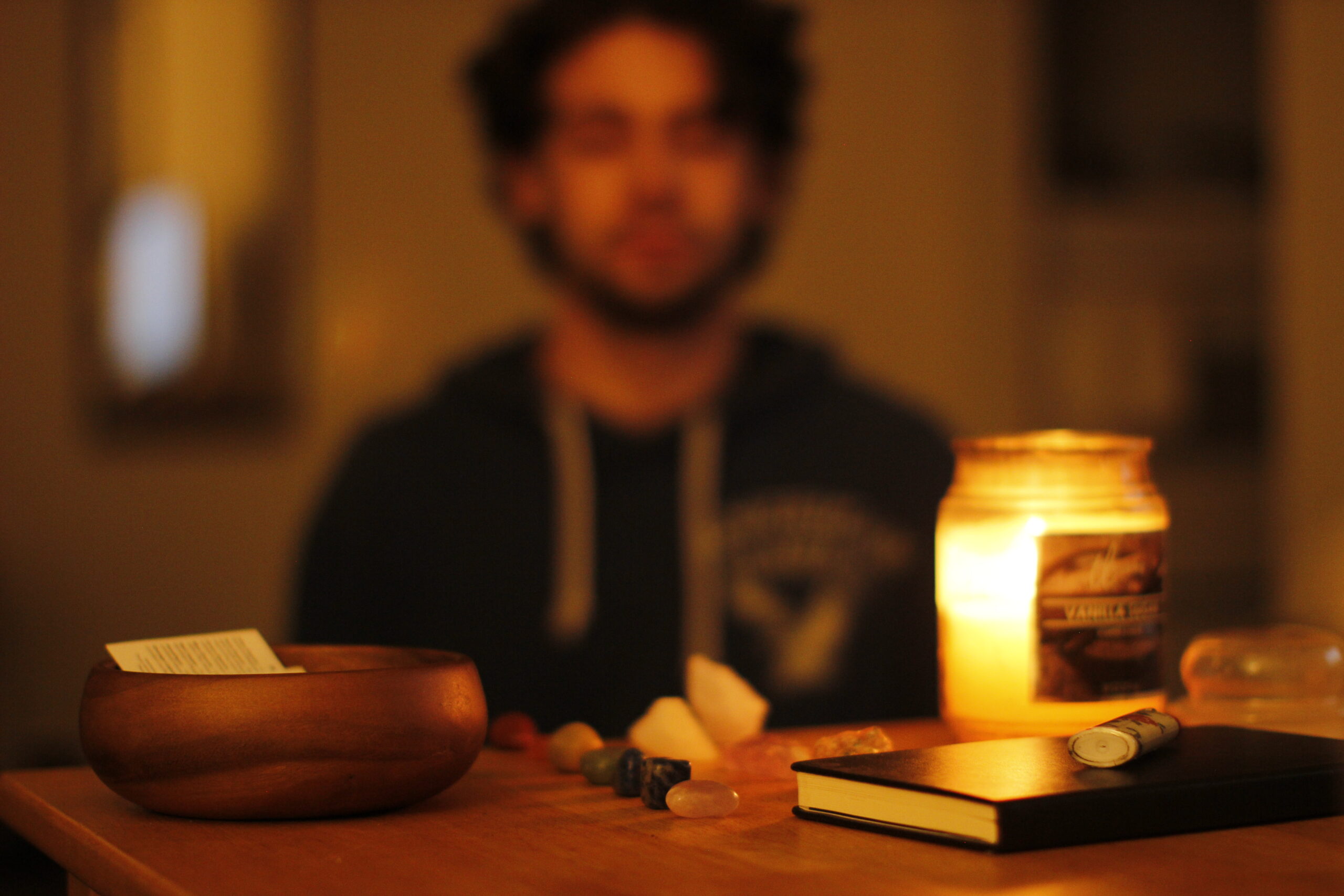With everything going on in the world, trying to manage stress levels can be an issue for everyone. Luckily, recent studies have shown that mindfulness can improve health, emotions, and change how brains function.
Research done by Harvard Medical School (HMS) indicates that practicing mindfulness and meditation techniques can impact how patients’ brains function. By studying the brain scans of depression patients before and after mindfulness practice, HMS concluded that meditation strengthened the amygdala. By strengthening the amygdala, patients became more in tune with their creativity, lowered cortisol levels, and facilitated the formation of long-term memory.
The National Library of Medicine released a study that indicates that mindfulness and meditation also increase cardiac health. Patients with high blood pressure were instructed to follow a meditation course before having their cardiac health
reexamined, while another group was left as a control.
The groups who underwent mindfulness training were reported to have significantly lower systolic blood pressure levels.
According to the National Library of Medicine, patients with Alzhiemer’s also benefit greatly from meditation and breathing exercises. Studies have shown that after engaging in mindfulness exercises, patients with Alzeihmer’s experienced greater cognitive lucidity and more fluid movements.
These patients also experienced an enhanced ability to recall past information.
Mindfulness-based stress reduction has been shown to increase compassion and empathy as well. In a study released by the American Psychological Association, it was found that these techniques allowed health-care workers to feel more positively about introspection and prioritizing their mental health. These workers also reported lower career-based stress, feeling more open to help others, and being open to creative problem solving.
Medical News Today identifies seven types of meditation or mindfulness routines, all of which utilize different methods and provide different types of benefits. Loving-kindness meditation practices mentally opening yourself to love from outside, and sending out love in return – it has “been linked to reduced depression, anxiety, and post-traumatic stress or PTSD.”
Body scan and mindfulness meditations involve focusing your thoughts on your body and sensations, or thinking on the outside things affecting your thoughts and being aware of them. Body scan meditation can be helpful for chronic pain, while mindfulness exercises have improved focus and memory in studies.
Breath awareness meditation centers around inhaling and exhaling, and either focuses only on your breath, or additionally repeating a positive mantra on particular breaths. On the opposite side, Kundalini yoga blends physical exercises with mantras, usually in a class setting but sometimes using individual programs.
Both of them are known to improve emotional clarity and in 2008, a “study of veterans with chronic low-back pain, for instance, found that yoga reduced pain,
increased energy, and improved overall mental health.”
Zen and transcendental meditation styles reach into a more spiritual area. Zen uses Buddhist teachings in the present to bring clarity and follow a teacher through the meditations. Similarly, transcendental meditation also often follows a
teacher, but instead the goal is to rise above the current state of being, often by repeating a mantra that the user wishes to achieve.
In general though, if you wish to practice meditation it is usually better to focus on what synchronizes best with your lifestyle, rather than the desired results.
For example, people in the workplace (or at school) who experience a less active, but mentally stressful lifestyle, may want to focus on bringing harmony to their mindspace. On the other hand, they might find it better to practice something like yoga, so that they can see both physical and mental benefits.
If you are on a college student-sized budget, don’t fear! Colleges often offer free sessions of yoga or meditation, and local rec departments or YMCAs frequently do too. For those who need to be careful about social
distancing, Headspace and Calm are free starter apps, and you can pay to unlock more lessons if you enjoy it. And of course, Youtube has an abundance of free yoga and meditation videos.
It is important to remember, though, that these practices can only go so far. If you are having issues that last longer than the day-to-day or interfere with your being able to work or sleep, you should consult a psychologist or licensed therapist. You can also see Winthrop’s Health and Counseling Services, who can help you work through the issue or get you set up for longer-term care.
To contact Health and Counseling Services, go to https://www.winthrop.edu/hcs/. You never have to be alone. If you or someone you know may be considering self-harm or suicide, please call 1-800-273-8255. For any other mental or substance abuse issues, you can call the SAMHSA National Helpline at 1-800-662-HELP (4357). The National Suicide Prevention Hotline are both free and confidential services available 24/7, 365 days of the year.
Photo by Tate Walden




